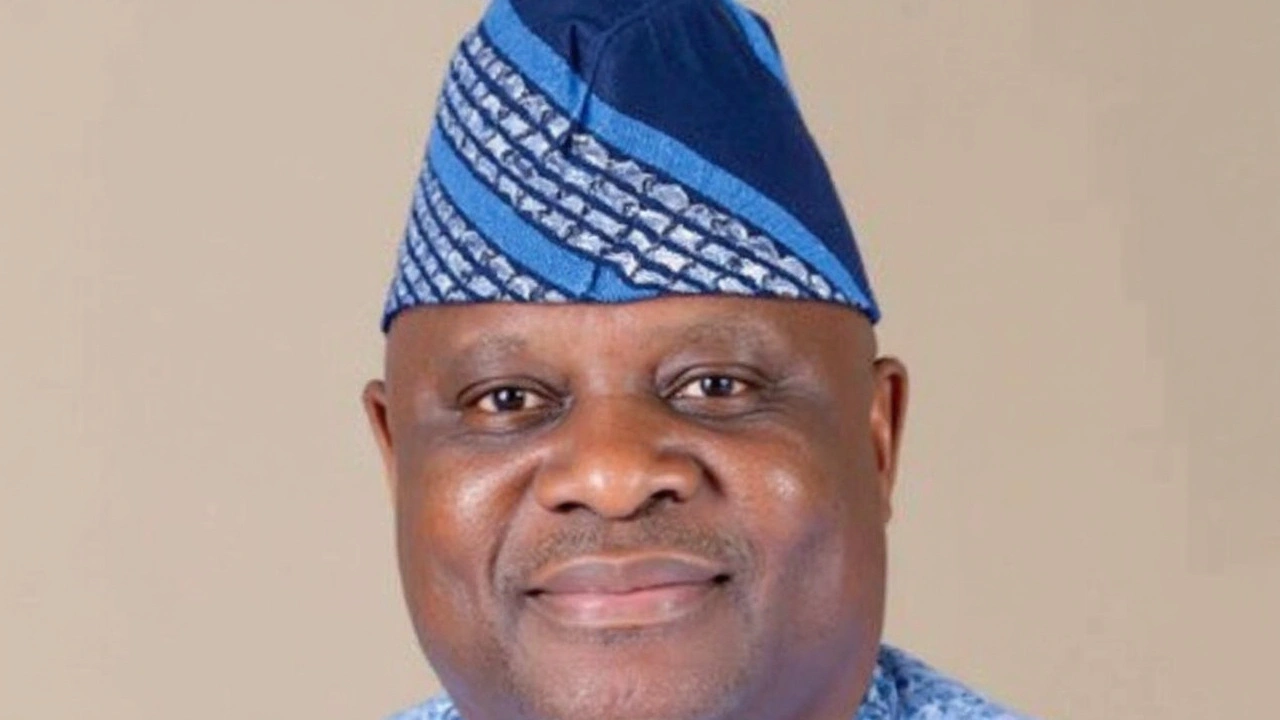Legal and Political Turmoil in Osun State
Osun State, Nigeria, is currently embroiled in a deeply contentious battle over local government elections, marked by both legal uncertainties and violent political clashes. The turmoil originates from a Supreme Court ruling in July 2024 that firmly established the necessity of democracy at the local government level, invalidating the then-prevalent caretaker committees. Fast forward to February 2025, the political landscape was further complicated by a Court of Appeal judgment. This decision restored the status of APC-elected officials, effectively entangling the region in a constitutional and political snafu.
Governor Ademola Adeleke of Osun, who is at the center of this maelstrom, pushed ahead with plans for elections scheduled for February 22, 2025, which met with substantial opposition. The decision drew fire from various quarters, including Attorney General Lateef Fagbemi, who flagged it as a potential breach of the constitution, warning it disregarded the precedent set by the Supreme Court. His objection to the election was that it countered the established principles of local autonomy, adding another layer of complexity to the ongoing crisis.
Violence and Resistance at the Polls
Despite the resistances, the Osun State High Court intervened by issuing an order that the Osun State Independent Electoral Commission (OSIEC) was to conduct the elections. This judicial directive was taken as a sign to proceed. However, the supposed democratic exercise quickly devolved into a battleground. Supporters of the APC and PDP clashed violently, immersing the state in a chaos that left ten individuals dead and scores more injured. The elections were stained with bloodshed, challenging the very purpose of democratic expression.
Throughout the ordeal, many legal minds and stakeholders have leveled criticism against the persistent use of caretaker arrangements. The mere presence of these committees represents a stark deviation from the democratic norms that the Supreme Court had underscored. Calls for strict adherence to constitutional norms have been vocal, underscoring the importance of allowing only elected individuals to govern the local councils.
The unfolding drama in Osun is not just an isolated incident but part of broader concerns about governance and autonomy in Nigeria. The situation underscores the delicate balance between judicial pronouncements and political will, as well as the effects these conflicts have on the ground, where citizens bear the brunt of political strategy clashing with judicial mandates. The events in Osun reflect a microcosm of the larger democratic challenges facing Nigeria, where the pursuit of political power often faces off with the rule of law.


hg gay
Reading about the turmoil in Osun really tugs at the heart, especially when you think about the ordinary citizens caught in the crossfire 😔. The Supreme Court’s decision back in July was meant to empower local democracies, yet the subsequent legal battles seem to have pulled the rug out from under many hopeful voters. It’s painful to see caretaker committees, which were supposed to be temporary, become a lingering obstacle to true representation. The Court of Appeal’s February ruling added another layer of confusion by reinstating APC‑elected officials, effectively rewinding progress made just months earlier. Governor Adeleke’s push for the February 22 elections, while bold, appears to have ignored the deep constitutional concerns raised by legal experts. Attorney General Fagbemi’s warnings about constitutional breaches were not just political rhetoric; they reflected genuine fear of precedent being shattered. The high‑court order for OSIEC to conduct the polls turned a legal directive into a battlefield, with startling violence erupting on the very day meant for civic participation. Ten lives were lost and countless others injured, a tragic reminder that democracy cannot thrive under the shadow of bloodshed. The core issue seems to be a tug‑of‑war between judicial mandates and political will, leaving the people of Osun in a painful limbo. It’s essential to remember that local governance is the backbone of any nation’s democratic health, and when it’s compromised, the entire system feels the tremor. Communities deserve stable, elected leadership rather than the uncertainty of caretaker factions that often lack accountability. The cries of those on the ground, demanding peace and fairness, echo louder than any courtroom verdict. While legal scholars debate the nuances of constitutional law, the reality on the streets is far more visceral and immediate. The situation also highlights a broader challenge in Nigeria: ensuring that legal reforms translate into tangible, peaceful outcomes for citizens. A respectful dialogue between the judiciary, political leaders, and civil society could pave a path toward de‑escalation. Ultimately, the hope is that future elections in Osun will be conducted with security, transparency, and genuine respect for the democratic process 😊.